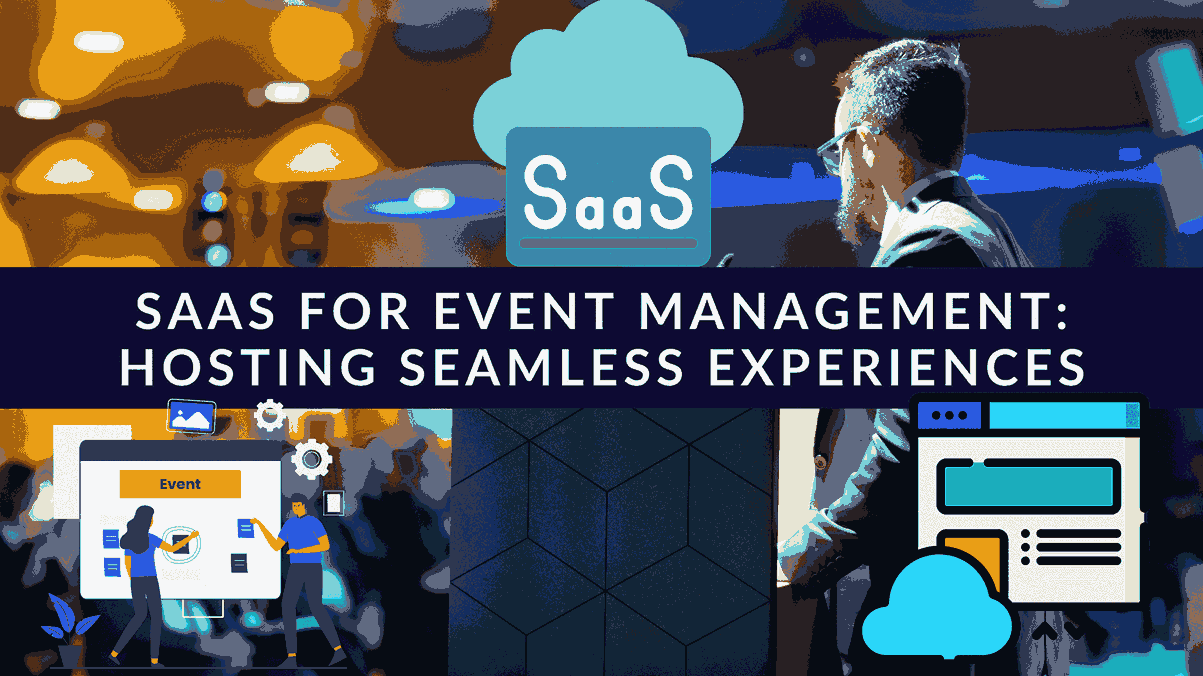SaaS for Event Management: Hosting Seamless Experiences


SaaS for Event Management: Hosting Seamless Experiences
Event planning can be an incredibly rewarding but equally challenging endeavor. The exhilaration of organizing a successful event is often shadowed by the stress and sleepless nights that go into the planning process. As an event organizer, you wear many hats, from orchestrating logistics to managing attendees, speakers, and exhibitors. It’s a complex task, but the right event management software can be your invaluable sidekick, saving you time and streamlining the entire planning process. In this blog post, we’ll explore the top 8 event planning software options, each tailored to different stages of event planning.
Key Factors of Event Management Software
Before diving into the list of top event management software, it’s crucial to consider some key factors when evaluating these tools:
- Reputation: Look for software with positive reviews on reputable sources such as G2, the Apple app store, and Google Play store. For more information on the topic of reputation, you can also check out this article.
- Robustness: Ensure the software runs reliably and doesn’t suffer from frequent crashes, downtime, or bugs. Even the smallest technical hiccup can consume valuable time.
- Security: Prioritize software that is SOC 2® Type II compliant, as secure management of attendee data is critical. Learn more about the significance of security in this insightful article.
- Core Features: Check whether the software offers essential features like registration, check-in, name badge generation, attendance tracking, speaker management, exhibitor/sponsor management, and website/page generation.
Now, let’s dive into the top 8 event management software options.
1. Whova (All-in-One Event Management Software)
- G2 Rating: 4.8/5
- Key Features: Ease of Use, Support Quality, SOC2 Type 2, Name Badge, Check-in, Registration, Webpage Generation
- Overview: Whova is an award-winning all-in-one event management platform that simplifies event management from start to finish. It’s a versatile tool for attendee engagement, check-in, name badge creation, certificates, surveys, sponsor and exhibitor management, and event webpage generation.
- Review: “”The Whova event planning software was a great organizational and communication tool for our meeting participants. The app allowed us to engage with each other throughout the event, kept our event paperless, and provided us with great memories through photo sharing.”” – Jay Harf, Vice President, L’Oreal
2. Cvent
- G2 Rating: 4.3/5
- Key Features: Ease of Use, Support Quality, SOC2 Type 2, Name Badge, Check-in, Registration, Webpage Generation
- Overview: Cvent is a comprehensive cloud-based event management system offering solutions for planning, promoting, and executing events. It covers event marketing, attendee engagement tools, event analytics, and integrated payment processing.
- Note: Users have found Cvent to have a steep learning curve and challenging support.
3. Eventbrite
- G2 Rating: 4.4/5
- Key Features: Ease of Use, Support Quality, SOC2 Type 2, Name Badge, Registration, Webpage Generation
- Overview: Eventbrite is a popular ticketing solution for events of all sizes, offering customizable options for ticketing, email confirmations, and reminders. However, it does charge an additional fee per ticket.
- Note: Some users find Eventbrite’s fees to be relatively high compared to other registration tools.
4. Airtable
- G2 Rating: 4.6/5
- Key Features: Ease of Use, Support Quality, SOC2 Type 2, Name Badge, Registration, Webpage Generation
- Overview: Airtable is a cloud-based collaboration platform that combines the ease of a spreadsheet with the power of a database. It can be used for various tasks, including event planning, and integrates with other tools like Zapier, Slack, and Google Drive.
- Note: Many event planners use Airtable alongside event management platforms like Whova for efficient planning.
5. ConfTool
- Features: Check-in, Registration, Webpage Generation
- Overview: ConfTool is designed for academic events and abstract management, facilitating communication between authors and participants. It offers different plans for events of various sizes.
- Note: It lacks mobile accessibility and is more specialized for academic conferences.
6. Slack
- G2 Rating: 4.5/5
- Key Features: Ease of Use, Support Quality
- Overview: Slack, primarily a team communication tool, can also be used for session interaction within events. It offers channels for various topics and allows group and one-on-one communication.
- Note: While great for real-time communication, it may not serve as a comprehensive event management tool.
7. ProjectManager
- G2 Rating: 4.4/5
- Key Features: Ease of Use, Support Quality
- Overview: ProjectManager.com is a cloud-based project management software designed for team efficiency and project organization. While not event-specific, it can assist in managing schedules and collaboration.
- Note: It lacks some features provided by dedicated event management software.
8. Zoom Events
- G2 Rating: 4.4/5
- Key Features: Ease of Use, Support Quality, Name Badge, Registration
- Overview: Zoom Events is designed for smaller events and focuses on streaming sessions, ticketing, and event management. It may not be suitable for larger conferences.
- Note: Consider other platforms if you need more advanced features like digital booths for sponsors and exhibitors.
In conclusion, the right event management software can turn you into an event planning rockstar. Whether you’re organizing a small meetup or a large conference, these tools offer various features and benefits. Consider your specific needs and preferences when selecting the best software to host seamless experiences for your attendees. For additional insights, read this article.








